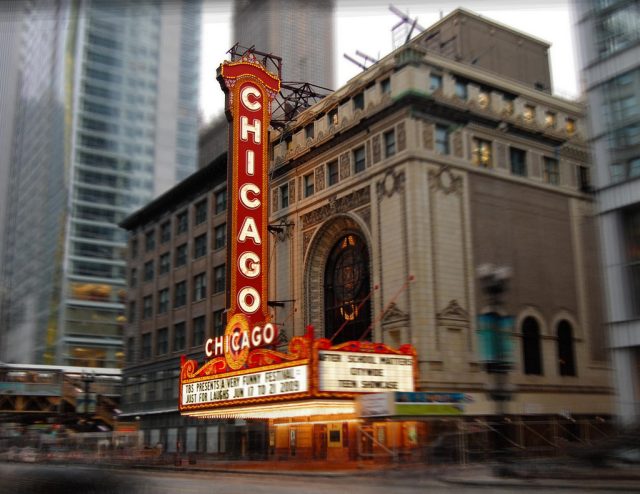
Starting Wednesday, the city of Chicago’s new "cloud tax" went into effect: it imposes a 9-percent tax on "patrons of amusement," including those services that are "delivered electronically."
In short: Netflix users in Chicago will be paying a little extra for their subscriptions pretty soon.
"We will be adding it to the cost we charge subscribers," Anne Marie Squeo, a Netflix spokeswoman, told Ars in a statement. "Jurisdictions around the world, including the US, are trying to figure out ways to tax online services. This is one approach."
She declined to respond to further questions.
To be clear, the "Amusement Tax Ruling" applies to a number of digital services, including Netflix. As it states:
The amusement tax applies to charges paid for the privilege to witness, view or participate in an amusement. This includes not only charges paid for the privilege to witness, view or participate in amusements in person but also charges paid for the privilege to witness, view or participate in amusements that are delivered electronically. Thus:
a) charges paid for the privilege of watching electronically delivered television shows, movies or videos are subject to the amusement tax, if the shows, movies or videos are delivered to a patron (i.e., customer) in the City (see paragraph 13 below);
b) charges paid for the privilege of listening to electronically delivered music are subject to the amusement tax, if the music is delivered to a customer in the City;
c) and charges paid for the privilege of participating in games, on-line or otherwise, are subject to the amusement tax if the games are delivered to a customer in the City.
Elizabeth Langsdorf, a cityspokeswoman, told Ars by e-mail that this new "ruling" is consistent with current tax law and is "not an expansion of the laws."
"The City has issued limited official guidance on digital access to entertainment and information," she wrote. "As a result, some online providers of movies, music and games have collected amusement tax, some lease tax, and some no tax. In addition, some online providers of financial products and other databases have collected lease tax, but many have assumed that they were exempt. The City's new rulings clarify the application of taxes to digital goods to ensure consistency and eliminate revenue gaps."
She also said that Chicago expects to take in $12 million per year due to this new tax ruling.
The ordinance says that the city will use a person’s billing address to determine whether or not the tax should be levied upon them.
In addition, Chicago is facing a massive budget shortfall largely due to school district pension payments.
You've got out-of-town friends, right?
Edward Kleinbard, a tax law professor at the University of Southern California, told Ars that he had never heard of such a tax anywhere else in the United States.
Reed Smith, a corporate law firm, wrote on its website earlier in June that this was an attempt "to tax the ‘Cloud’ more directly and comprehensibly than any other U.S. jurisdiction."
Michael Wynne, the lead author of the Reed Smith article, told Ars that the law provides for a grace period until September 1 to begin collecting this tax.
"For consumers, it means that sometime between now and September 1 they may see the 9 percent charge on their provider’s bills, from those providers that believe they have sufficient presence in Chicago to be required to collect the tax from the consumer," he said by e-mail.
Wynne added that his firm has clients who are both providers of such online services as well as customers themselves.
"Providers are looking to see whether they are confident they are not required to collect the tax (e.g., not present in the City of Chicago), but those that are present are looking to see who to administer this," he wrote.
"They are already getting calls from clients changing their billing addresses to non-Chicago locations, which may suffice to not bill the tax, but that does not protect the City of Chicago user in an audit from being assessed tax on the in-City use of the services. Others are figuring out how much use they have in Chicago so they can tell their provider to collect on only X percent of the full charge (e.g., say 20 users are in Chicago and 100 are in Nashville and elsewhere)."
In his article, Wynne opened the door to possible litigation—not necessarily from his firm.
Nonetheless, there are strong arguments that both rulings run afoul of provisions in the Federal Telecommunications Act, the Internet Tax Freedom Act, and federal and Illinois constitutional limits on taxation. In addition, the rulings gloss over many details of applicable federal law and how telecommunications and computer networks operate, and assume the simplest factual scenarios that do not realistically comport with how many providers and their customers transact business. As a consequence, the time to look at the impact of these rulings is now, before mounting exposure and interest accrual makes challenging these positions economically infeasible.
If you live in Chicago and see this appear on your Netflix bill or any other digital service, please let us know.
reader comments
199